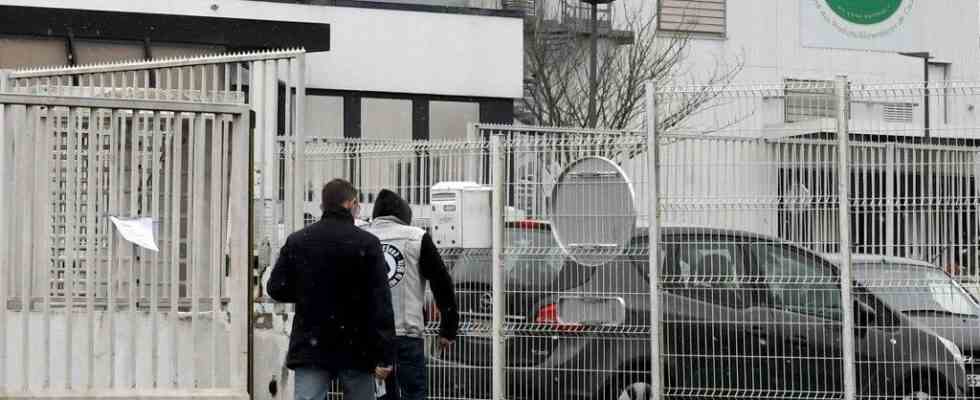Six months after the health scandal of Buitoni pizzas contaminated with E. coli in the Caudry plant (Nord), an investigation by the Investigation unit of Radio France relays this Saturday the testimonies of employees. They denounce a reduction in cleaning time and the use of flour more sensitive to contamination. What Nestlé France denies through one of its spokespersons at AFP.
The group said on Saturday that the time spent cleaning production lines at the Buitoni factory in Caudry had not changed since “the internalization of cleaning” in 2015, reacting to statements by employees broadcast by France Inter.
A very reduced cleaning time?
“At the end of each production cycle, the lines are fully shut down and cleaned following a strict process lasting 4 hours and 45 minutes, including a cleaning phase, then disinfection and finally a rinse with water, the effectiveness of which is controlled by systematic microbiological sampling in different strategic areas of the site,” a spokesperson for the group told AFP.
In a survey broadcast Saturday on France Inter, employees of the Caudry pizza factory claim that since 2015, production time has practically doubled while cleaning time has drastically decreased, going “from 8 hours to 4:45 a.m. ” per day.
While Nestlé does not dispute this duration, it asserts that the actual time devoted to cleaning has not changed: before 2015, a service provider was responsible for cleaning, carried out between 11 p.m. and 5 a.m., with a team of five people; since the internalization, at least ten people have been assigned to cleaning, over a shorter period, it was explained.
One of the worst health scandals of recent years
This Buitoni factory in Caudry is at the heart of one of the worst health scandals in recent years in France. As a reminder, on March 18, Nestlé closed two production lines. On April 1, the Nord prefecture banned the activity of the Caudry factory, after the health authorities announced that they had established a link between the consumption of Fraich’Up pizzas and several serious cases of contamination by the bacterium Escherichia coli. .
These pizzas are suspected of having caused the death of two children. A judicial investigation was opened in particular for manslaughter and involuntary injuries, as well as the marketing of a product dangerous to health and endangering others.
Various inspections had reported “the presence of rodents” and the “lack of maintenance and cleaning of manufacturing, storage and passage areas” in the factory. In 2012, the presence of “mold” and “rust” was noted, in 2020 that of “cobwebs” on the ceiling of the bakery, “greasy and oily” material or even dirt “accumulated” in the duct ventilation. Hygiene conditions deemed to be in “very marked deterioration” in March 2022 when the inspectors returned there “as part of the official health alert”.
Nestlé France did not respond on all points
Employees told France Inter that the internalization of cleaning, while the production rate accelerated, had led to a concentration on cleaning the production line and machines, to the detriment of the rest, “such as the walls and ceilings. Employees also questioned the decision to close only one week annually instead of three, claiming that flour silos had not been cleaned for seven years.
On this point, without commenting on the silos, Nestlé France affirms that the duration of the annual closure is variable and is not only devoted to cleaning, but also to the maintenance of the site.
If the origin of the contamination remains unknown to date, the boss of Nestlé France Christophe Cornu had declared in mid-July to carry out “in-depth investigations on the flours used on the Fraîch’Up line”, in an interview with the Figaro. He then presented his “apologies” to the families of the children affected by contamination and announced the creation of a “victim support fund”.

